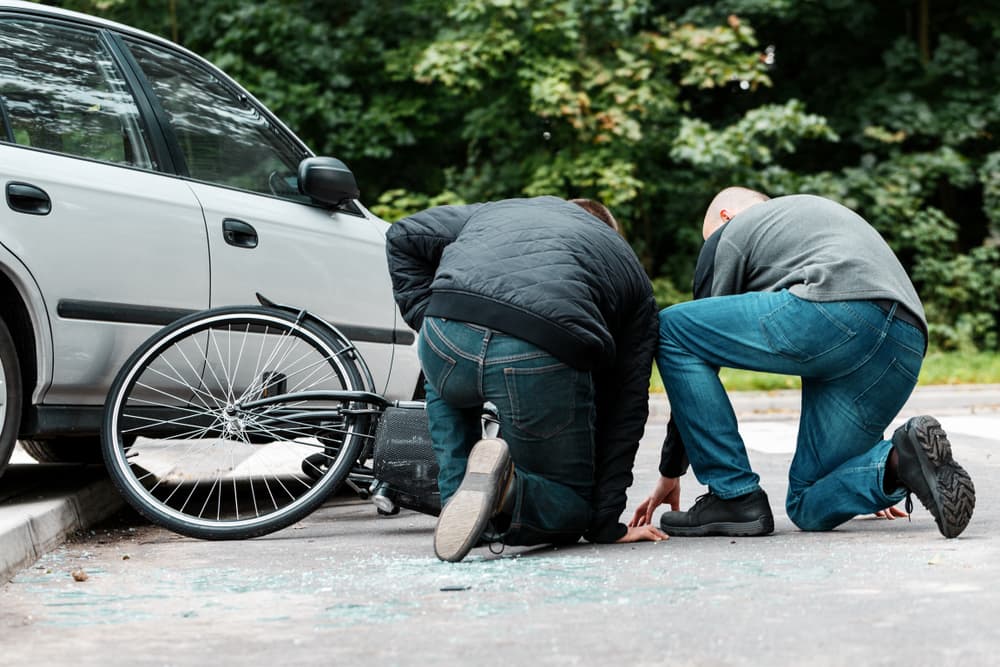Cyclists are among the most vulnerable people on the road due to being exposed to high-speed traffic, distracted drivers, and road designs that prioritize motor vehicles. When a driver strikes someone on a bicycle, the resulting injuries can be life-altering. The question for many victims is whether they can sue the driver who hit them.
If the driver who hit you was negligent, you have the legal right to pursue a claim against them. However, asserting that right involves more than pointing to a traffic violation. A successful lawsuit requires careful legal framing. Your bicycle accident attorney in Northern Virginia can provide factual proof and a clear connection between the driver’s actions and your losses.
When Is a Bike Crash Grounds for Legal Action?

Not every collision leads to a lawsuit. For a cyclist to bring a legal claim against a driver, certain conditions must be met. Chief among them is that the driver must have been legally at fault. In other words, it’s not just that you were injured, but that the injury happened because someone failed to follow the rules or behave responsibly.
The law refers to this as negligence. However, in simple terms, it means that someone acted carelessly when they should have acted cautiously. That might include:
- Running a red light or stop sign
- Failing to yield while turning
- Distractions such as texting and driving at the same time
- Speeding in a residential or urban area
- Not checking blind spots before changing lanes
- Impaired driving
These are both traffic violations and breaches of the legal duty every driver owes to others on the road, including cyclists. If a driver violates that duty and causes harm as a result, you can hold them financially responsible through a personal injury lawsuit.
It’s also important to note that even less obvious scenarios may qualify. For example, a driver who opened their car door into a bike lane, causing a cyclist to crash, may not think they’ve done anything wrong. But under many state laws, that’s a clear-cut case of driver negligence. The more evidence you have to show what actually happened, the stronger your lawsuit becomes.
What Do You Need to Prove to Sue a Driver?
Filing a lawsuit after a bike crash is not just about telling your side of the story; it is more about showing that the law supports your claim. To succeed, your case must establish four elements. If any one of these is missing, the lawsuit may fall apart regardless of how severe your injuries are.
Here’s what your claim must demonstrate:
The Driver Had a Duty of Care
Every person who operates a motor vehicle assumes an obligation to operate in a safe manner and avoid putting others in harm’s way. That duty extends not just to other cars, but to pedestrians, cyclists, and anyone else sharing public roads. This part of the case is usually undisputed, and it’s a foundational principle of traffic law.
They Breached That Duty
This is where most accident injury claims begin to take shape. You’ll need to prove that the driver did something or failed to do something that a reasonably careful driver would not have done under the same circumstances. This could involve running a stop sign, making an illegal turn, or simply not paying attention to their surroundings.
The Breach Caused the Crash
It’s not enough to show that the driver behaved irresponsibly. You must connect their actions directly to the crash. For instance, if a driver was speeding but the actual collision happened because a cyclist lost control on a wet road, the driver may not be legally responsible. Causation must be clear and provable.
You Suffered Actual Damages
This final element ties the legal theory to real-world consequences. Damages can include physical injuries, hospital bills, missed time from work, damage to your bike, or even long-term disability or emotional trauma. The more thoroughly these losses are documented, the stronger your claim.
These four key elements lay the groundwork for a bike crash lawsuit. When all are present and backed by solid evidence, you have a strong legal case. However, if any part is lacking or not convincing, the driver’s insurance company or even the court might turn down your claim.
Why an Injury Lawyer Matters in Bicycle Injury Cases

After a bicycle accident, your ability to recover compensation depends not only on what happened, but also on how and when you respond. Personal injury claims in Virginia involve procedural rules and deadlines, and failure to comply can jeopardize your entire case.
For example, Virginia law allows a two-year window from the date of the accident to bring a lawsuit. However, there are several other critical steps that must be taken much sooner, such as notifying insurers, collecting police reports, preserving evidence, and documenting medical treatment. In some cases, especially those involving a government entity or unsafe road conditions, shorter notice periods may apply.
Accurately valuing your claim is another reason to involve a personal injury lawyer early. The full impact of a bicycle accident isn’t limited to your current medical bills but may extend to future healthcare needs. Your attorney will thoroughly assess both economic and non-economic damages to ensure that any settlement offer is grounded in reality.
Legal counsel ensures nothing slips through the cracks. Your bike accident attorney will take on the communication with the insurer, file timely legal documents, and build a compelling case supported by experts’ analysis and medical records. They also help you avoid pitfalls in procedures that could delay or weaken your claim, such as incomplete documentation.
Your Rights as an Injured Cyclist Matter
A bicycle crash caused by a careless driver is a serious disruption to your daily life. If you were hit while riding, you may have legal options beyond what insurance is offering. Holding the driver liable through a personal injury claim can help you secure the outcome you need to move forward. However, strong legal claims are built on evidence and a clear understanding of what the law allows. Contact your accident injury lawyer today to explore your legal options.
